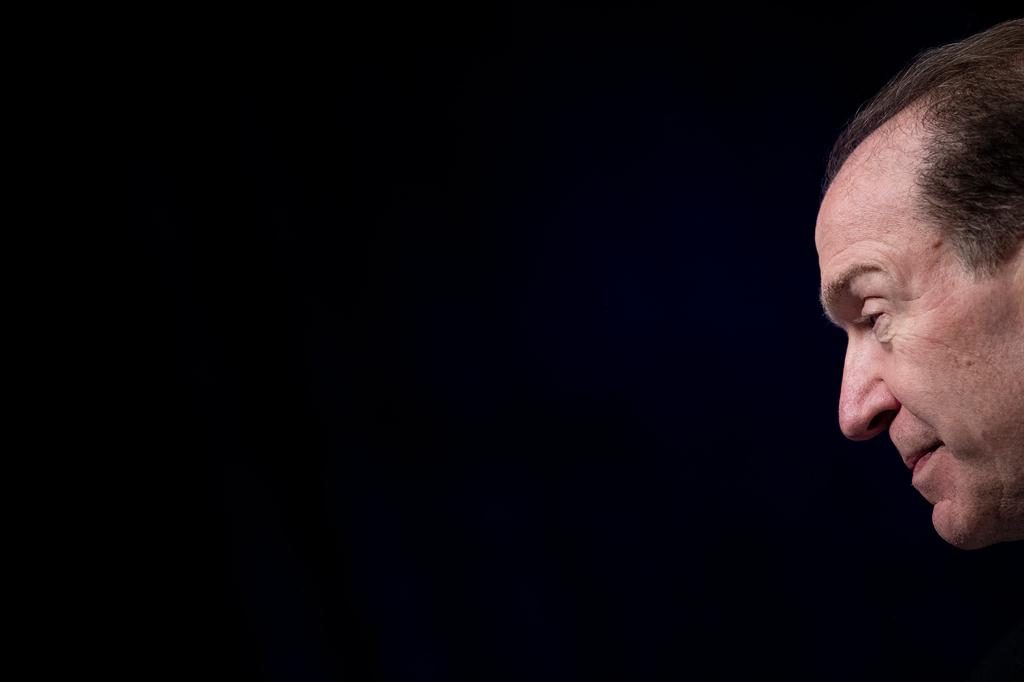Malpass, World Bank president, wrong, says AfDB on its role in Africa’s debt profile
February 13, 20201.5K views0 comments
By Samson Echenim
The African Development Bank (AfDB) has described as inaccurate, alleged statement by World Bank President, David Malpass that the continental bank’s tendency to quickly lend to member countries was growing Africa’s debt profile.
In several recent news reports, Malpass was quoted as saying “some multilateral development banks, including the African Development Bank, have a tendency to lend too quickly and in the process, add to the continent’s debt problems.”
“This statement is inaccurate and not fact based. It impugns the integrity of the African Development Bank, undermines our governance systems, and incorrectly insinuates that we operate under different standards from the World Bank. The very notion goes against the spirit of multilateralism and our collaborative work, the AfDB in a statement on Thursday.
It continued, “For the record, the African Development Bank maintains a very high global standard of transparency. In the 2018 Publish What You Fund report, our institution was ranked the 4th most transparent institution, globally.
“The AfDB provides a strong governance program for our regional member countries that focuses on public financial management, better and transparent natural resources management, sustainable and transparent debt management and domestic resource mobilization. We have spearheaded the issuance of local currency financing to several countries to mitigate the impacts of foreign exchange risks, while supporting countries to improve tax collection and tax administration, and leveraging pension funds and sovereign wealth funds to direct more monies into financing development programs, especially infrastructure.
“The AfDB’s Africa Legal Support Facility (ALSF) supports countries to negotiate terms of their royalties and taxes to international companies, and terms of their non-concessional loans to some bilateral financiers. We have been highly successful in doing so.
“These are the facts: The World Bank, with a more substantial balance sheet, has significantly larger operations in Africa than the African Development Bank. The World Bank’s operations approved for Africa in the 2018 fiscal year amounted to $20.2 billion, compared to $10.1 billion by the AfDB.
“With regard to Nigeria and South Africa, the World Bank’s outstanding loans for the 2018 fiscal year to both countries stood at $8.3 billion and $2.4 billion, respectively. In contrast, the outstanding amounts for the African Development Bank Group to Nigeria and South Africa were $2.1 billion and $2.0 billion, respectively, for the same fiscal year.
“With reference to the countries described as “heavily indebted,” our Bank recognizes and closely monitors the upward debt trend. However, there is no systemic risk of debt distress.
“According to the 2020 African Economic Outlook, at the end of June 2019, total public debt in Nigeria amounted to $83.9 billion, 14.6 percent higher than the year before. That debt represented 20.1 percent of GDP, up from 17.5 percent in 2018. Of the total public debt, domestic public debt amounted to $56.7 billion while external public debt was $27.2 billion (representing 32.4 percent of total public debt). South Africa’s national government debt was estimated at 55.6 percent of GDP in 2019, up from 52.7 percent in 2018. South Africa raises most of its funding domestically, with external public debt accounting for only 6.3 percent of the country’s GDP.”
The bank said it continued to play critical roles in development efforts and in the aspirations of developing countries, most especially in Africa.
“Given substantial financing needs on the African continent, the development assistance of the AfDB, the World Bank and other development partners remain vitally important, with increasing calls for such institutions to do even more,” the bank stated.
According to AfDB, the lending, policy, and advisory services of these development institutions in their respective regions are often coordinated and provide substantially better value-for-money to developing nations, compared to other sources of financing.
“As a result of the AfDB’s AAA-rated status, we source funding on highly competitive terms and pass on favorable terms to our regional member countries. Combined with other measures to ensure funds are used for intended purposes, it helps regional member countries finance debt and development in the most responsible and sustainable way,” it noted.
The AfDB further stated, “With regard to the need for better lending coordination and the maintenance of high standards of transparency, the AfDB coordinates lending activities, especially its public sector policy-based loans, closely with sister International Financial Institutions (notably the World Bank and the IMF). This includes reliance on the IMF and World Bank’s Debt Sustainability Analyses (DSA) to determine the composition of our financial assistance to low-income countries; and joint institutional approaches for addressing debt vulnerabilities in the African Development Fund (ADF) and International Development Association (IDA) countries.
“In addition, country economists of the AfDB fully participate in regional and country level IMF Article 4 missions. Contrary to suggestions, these are just a few concrete examples of historic and ongoing coordination between sister Multilateral Development Banks, IFIs, and development partners. The African Development Bank is committed to the development of the African continent. It has a vested interest in closely monitoring debt drivers and trends in African countries as it supports them in their efforts to improve the lives of the people of Africa.
“We are of the view that the World Bank could have explored other available platforms to discuss debt concerns among Multilateral Development Banks. The general statement by the President of the World Bank Group insinuating that the African Development Bank contributes to Africa’s debt problem and that it has lower standards of lending is simply put: misleading and inaccurate.”

